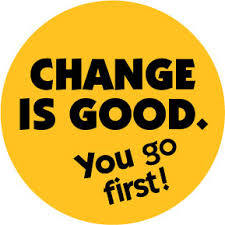It seems we are constantly hearing and reading statistics that say American students are not achieving very well. We rank low in reading and mathematics compared to other industrialized countries. A quarter of our children never graduate from high school and the graduation numbers are even worse in college. Our poor children and learning disabled children and minority children have lower rates of achievement than our white and economically advantaged children.
All of this is true. And we don't like it; and we want it to change. We want all students to be successful; we want all students to graduate from high school; we want all students to be grow to be capable, responsible adults. But this is a difficult problem--as is evidenced from the years and years of data with very little improvement on these fronts.
 Something has to change. We cannot keep teaching the same way we have always taught and expect different results. Teachers give their best everyday. It isn't a matter of "not trying" or "not doing our best". We have to do things differently.
Something has to change. We cannot keep teaching the same way we have always taught and expect different results. Teachers give their best everyday. It isn't a matter of "not trying" or "not doing our best". We have to do things differently.If I knew the solution(s) to this problem, I would tell you. The best I can do is offer my ideas:
(1) We need to instruct students in a way that they respond to; we need to know what they "get" and what they don't get--so we can help them.
(2) We need to use more technology in a more effective way.
(3) We need to be more concerned about learning and less concerned about grades.
(4) We need to use valuable classtime for addressing student questions and much, much less classtime forcing students to complete worksheets. (If they already know how to do the work, why force them to show us again and again and again. If they don't know how to do the work, why force them to do ten problems that they can't do.)
(5) We need to increase student engagement every minute of every class. There should be less teacher-talk and more student-talk.
What are your five best ideas for changing teaching? If you could do anything in your classroom to help students to learn better, what would you do? We have to do something different if we want different (and better) results.



